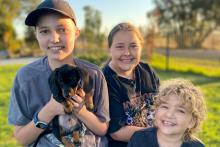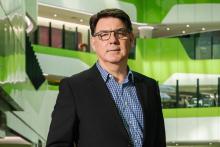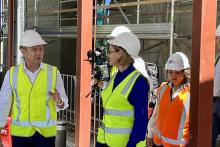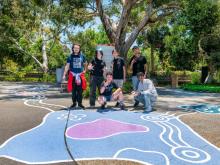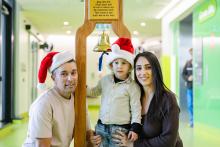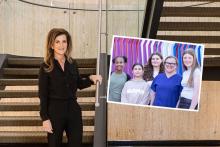The aim of World Children’s Day, November 20, 2025, is to help children thrive, but early education and health care are two areas of concern for Western Australian children.


The aim of World Children’s Day, November 20, 2025, is to help children thrive, but early education and health care are two areas of concern for Western Australian children.
The NAPLAN results of 2025 coupled with the release of the Australian Early Development Census (AEDC) results have revealed a dire need for earlier intervention in childhood education.
The 2025 NAPLAN results revealed that about one in three students are below expected proficiency standards in literacy and numeracy, according to the Australian Curriculum, Assessment and Reporting Authority (ACARA).
The national AEDC results, which assesses five areas of early childhood development, found that the number of children on track with all five areas had decreased from 54.8 per cent in 2021 to 52.9 per cent in 2024.
The Y WA has identified a solution to this educational concern through its School ReadY program, a unique evidence-based initiative that has been rolled out across all 14 of the organisation’s Early Learning Centres (ELC) across WA.
The program is informed by a contemporary understanding of the science of early childhood learning and brain development, and according to feedback from families, School ReadY has been delivering learning experiences with notable results.
It provides educators with the resources and coaching they need to build success in three developmental domains: literacy and language, social and emotional wellbeing, and numeracy.
The literacy and language component has been supporting children aged three to five years to develop oral language and early literacy skills to give them the best start to formal schooling.
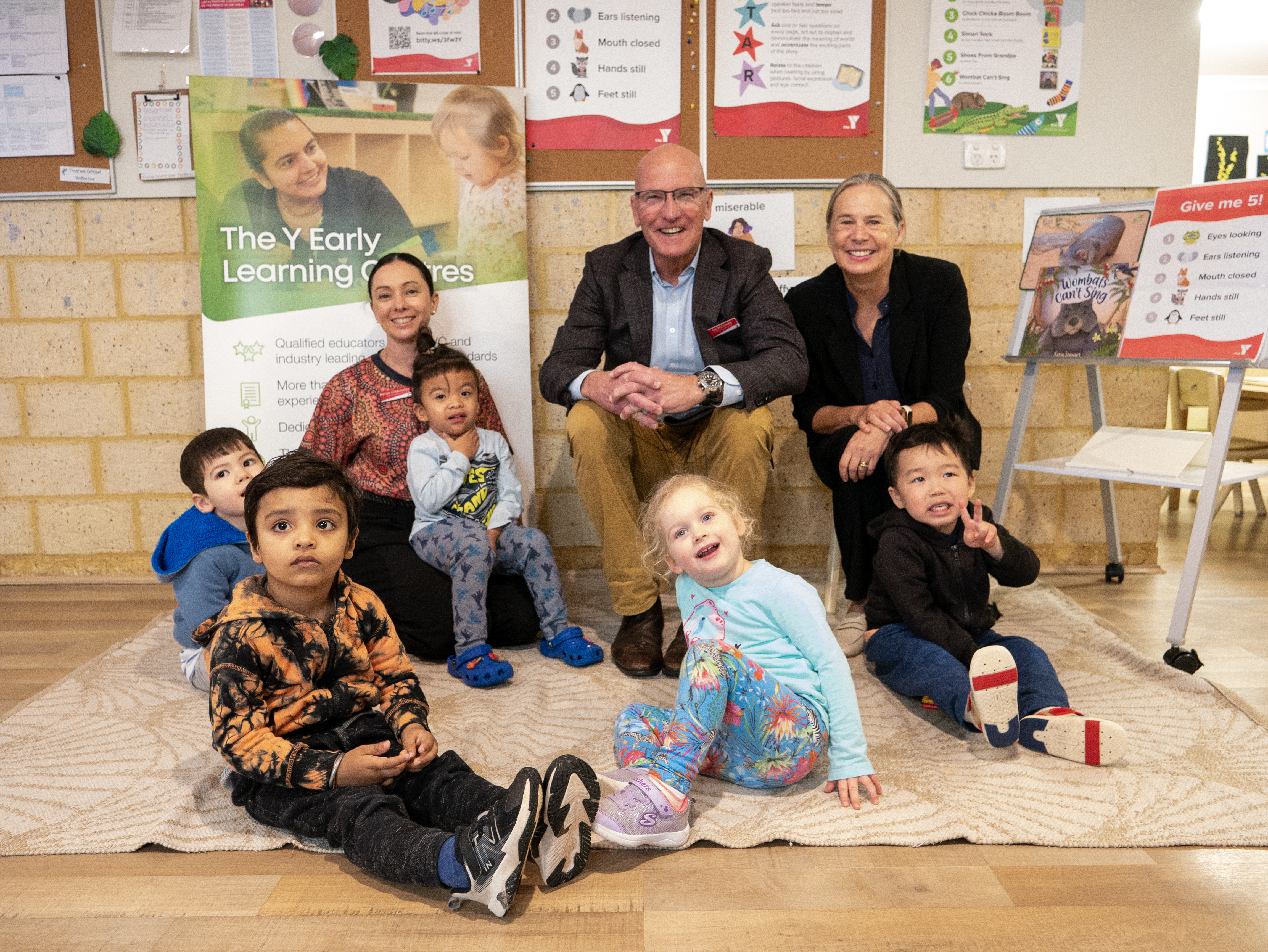
The Y WA's literacy specialist Renee Chakaodza (left), CEO Dr Tim McDonald, and ECU's Dr Simmone Pogorzelski.
The Y WA literacy specialist Renee Chakaodza said the School ReadY program delivers learning opportunities through intentional teaching combined with play-based experiences.
“Our School ReadY Program provides opportunities for children to develop fundamental pre-literacy and oral language skills including phonological awareness, semantic knowledge, narrative skills and comprehension,” Ms Chakaodza said.
“Developing these critical skills before they start school has a lasting impact because the early years are a period of enormous growth.”
Four-year-old Amber Aulakh attended the Y WA’s Brabham Early Learning Centre and as she progressed to kindergarten at a local primary school in 2025, her mother Param Aulakh noted the results from the School ReadY program.
“The School ReadY Program builds foundational skills like vocabulary, phonics, and early literacy in a way that feels fun and engaging for children,” Ms Aulakh said.
“It’s been a game changer for Amber not just academically, but emotionally and socially too. It gave her the tools to build confidence, communicate clearly and embrace learning with excitement.
“Watching her grow into an expressive, curious, and school-ready child has been an absolute joy.”
"It’s been an intense, exciting journey so far to develop, implement and evaluate our School ReadY Program, and our progress to date is testament to the commitment and passion of our people." The Y WA CEO Tim McDonald
The north-east Perth community of Brabham is considered a culturally and linguistically diverse area, with more than 50 different languages being spoken in the homes of students attending Brabham Primary School.
“The bilingual support has truly empowered her to express herself clearly and confidently in different settings and she is now communicating more openly both at home and in school,” Ms Aulakh said.
“It’s helped her strengthen her English without losing connection to her home language and that’s been so important for us as a family.
“It’s made a real difference in helping her feel confident and connected across both cultures.”
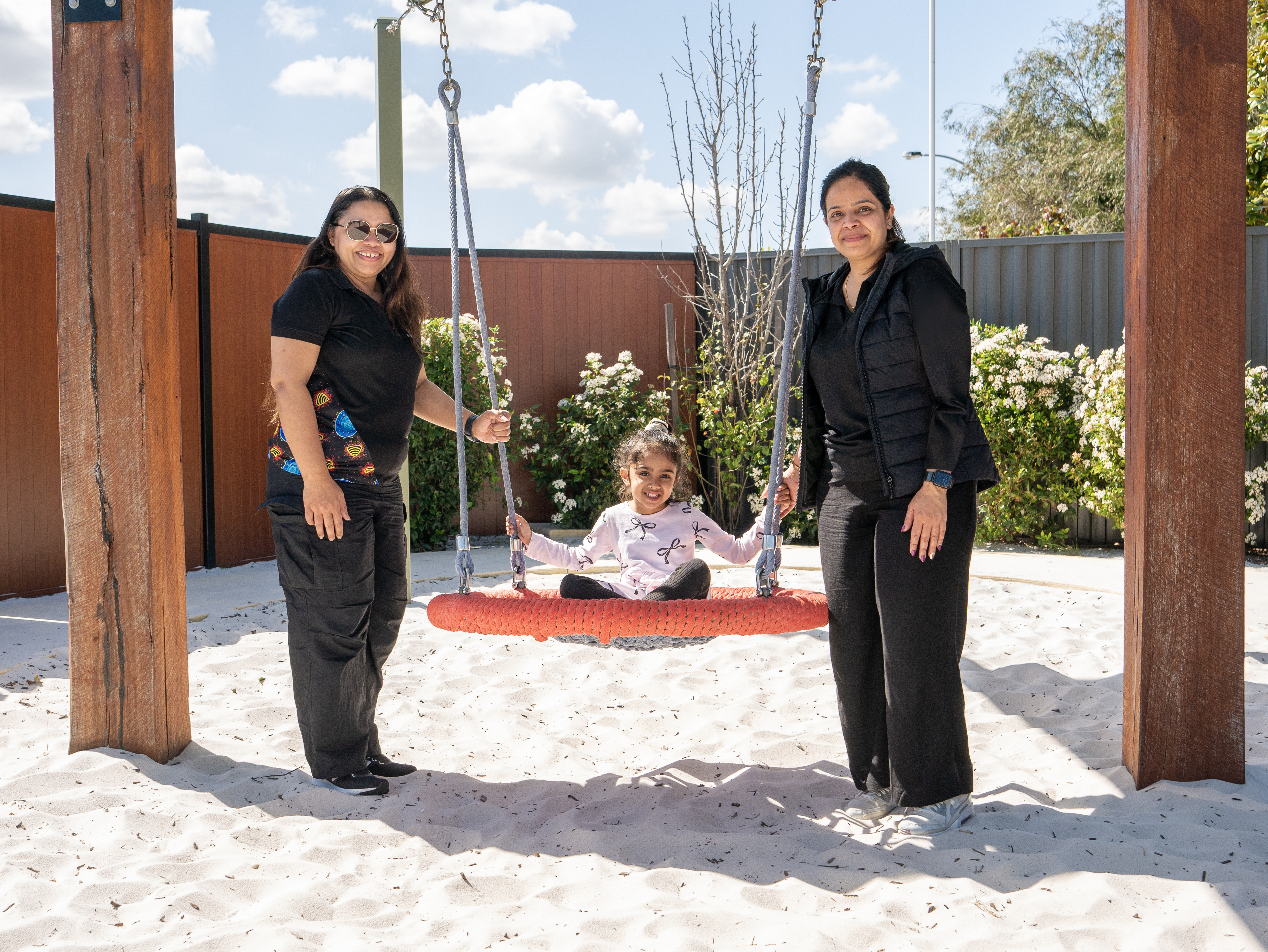
The Y WA Brabham Early Learning Centre director Noureen Ansari (left) with Amber Aulakh and her mother Param Aulakh.
School ReadY aims to ‘level the playing field’ by giving all children – regardless of their postcode or family background – opportunities to develop key skills needed to set them up for success once their formal schooling begins.
The Y WA chief executive Tim McDonald said the number of children arriving at school without fundamental pre-literacy and oral language skills was increasing.
“With nearly one in four Australian children starting school developmentally behind, it’s difficult and costly for schools to close that gap,” Dr McDonald said.
“High-quality early learning experiences like those we are delivering through School ReadY have the potential to reverse this trend, particularly for children experiencing disadvantage.
“It’s been an intense, exciting journey so far to develop, implement and evaluate our School ReadY Program, and our progress to date is testament to the commitment and passion of our people.”
The ultimate aim of the School ReadY Program is to support the holistic development of children before they commence school, providing them with the best start in life.
Cerebral palsy early detection saves childhoods
Perth Children’s Hospital Foundation (PCHF) has funded the expansion of a world-leading cerebral palsy (CP) early detection program in the Kimberley region.
The Accelerate WA pilot program has had great success at reducing the age of CP diagnosis in the region, decreasing from an average of 19 months old to under five months old.
This puts diagnosis well within the timeframe to take advantage of neuroplasticity, the critical window for life-changing early intervention.
CP is a neurological disorder that permanently affects body movement and muscle coordination, with symptoms typically appearing during infancy.

Henry Dawe, a toddler from Broome, was supported by the PCHF-funded cerebral palsy early detection program.
The PCHF-funded Accelerate WA pilot program has supported children living in the Kimberley, including Broome toddler Henry Dawe.
As a baby, he seemed the picture of health with no signs of any issues for his family to be concerned about.
However, when his mother Marnie Oliver, who is an experienced occupational therapist, noticed he was not using one of his arms and could not sit properly to start solid foods, she began to worry.
“My mind went to the worst case, it can be worse things than CP when they start showing neuro signs,” Ms Oliver said.
“We were also concerned because the services up here aren’t specialised and it crossed our minds that we might need to move to Perth, but we’ve been really impressed with the support we’ve received locally and the help via telehealth has been a huge relief.”
"Early intervention services are basically setting up a kid for the rest of their life to have a more fulfilling life." Mother Marnie Oliver
Recognising the benefits of early detection and intervention for children like Henry is critical.
Local Accelerate-trained clinicians at Broome Hospital quickly swung into action, conducting assessments and then referring Henry to the Early Intervention clinic at Perth Children’s Hospital (PCH).
Henry began interventional therapy with a large portion delivered via telehealth, allowing the family to stay in Broome close to family and other support networks.
Collaborating with the PCH team ensured Broome-based clinicians were able to implement best practice clinical care that has helped Henry make incredible progress.
Ms Oliver said the services have allowed her son’s world to open up quickly.
“In the space of a few months of therapy he was using his right arm a lot, he’s standing now and moving towards walking, he can engage with his friends and play with his brother,” Ms Oliver said.
“I’m not trained in this area so without the support provided we wouldn’t have been doing the right stuff to get as many gains as we’ve gotten.”
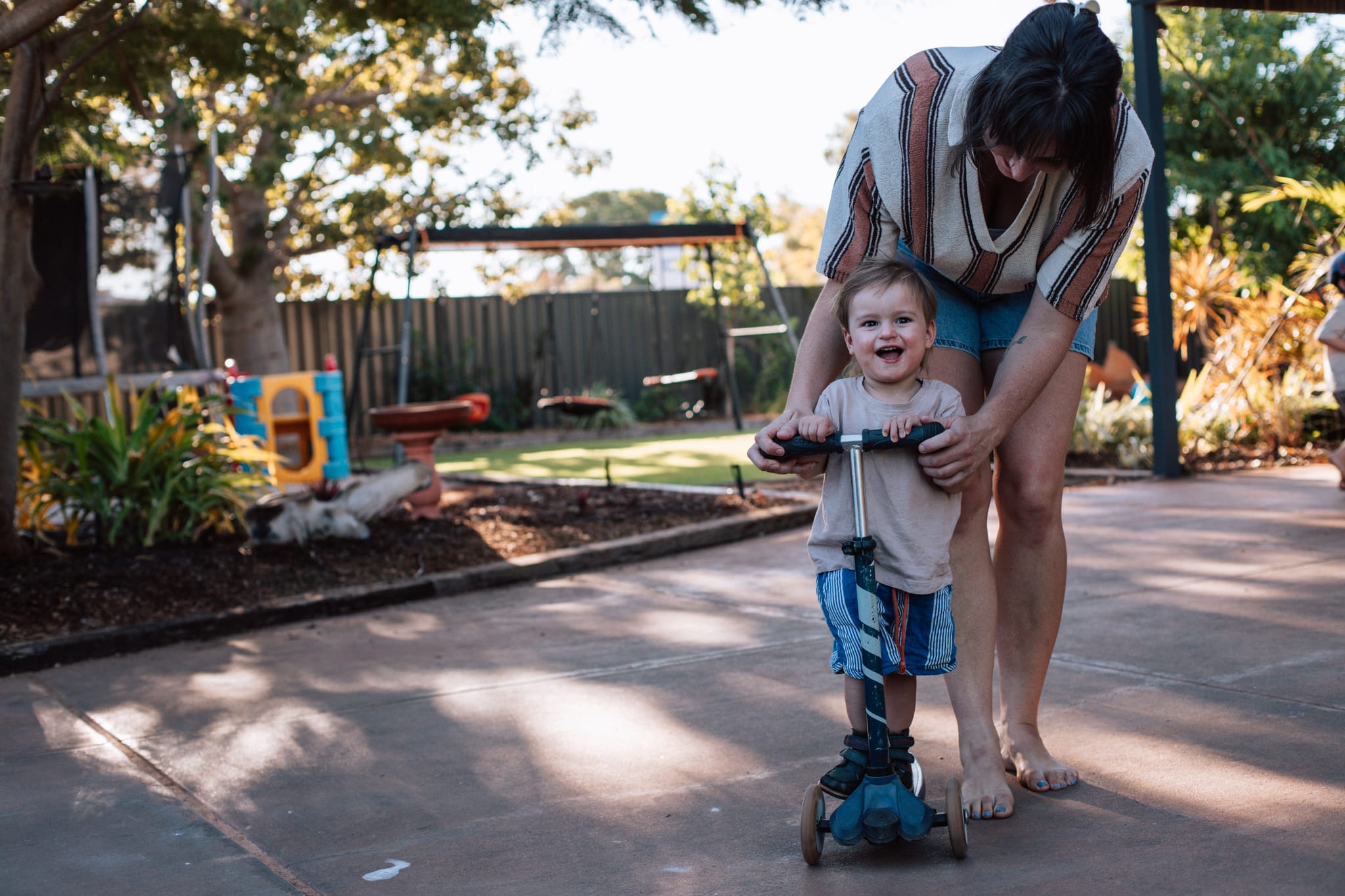
Recognising the benefits of early detection and intervention for children like Henry is critical.
These positive results have not only impacted Henry, but his parents and other family around him.
“It’s made us feel empowered that there is something we can do rather than get stuck in the impairments,” Ms Oliver said.
“It’s made us feel much more hopeful.”
“Early intervention services are basically setting up a kid for the rest of their life to have a more fulfilling life.
“The difference in all areas will be immeasurable and for families the hope that gives is massive.”
Now an active and happy boy, Henry is flourishing with the impact of his vital early therapy set to be felt for many years to come.
After the success of the Accelerate pilot program, PCHF is proud to support plans to tackle the urgent need for early CP detection and intervention across the state.
PCHF chief executive Carrick Robinson said that a state-wide rollout of the program is being proposed for the many vulnerable children in other WA regions missing out on crucial interventions that could transform lives.
“We’re proud to support such a transformative and impactful program offering children with cerebral palsy in regional WA the best possible start in life, enabling them to flourish and thrive,” Mr Robinson said.





